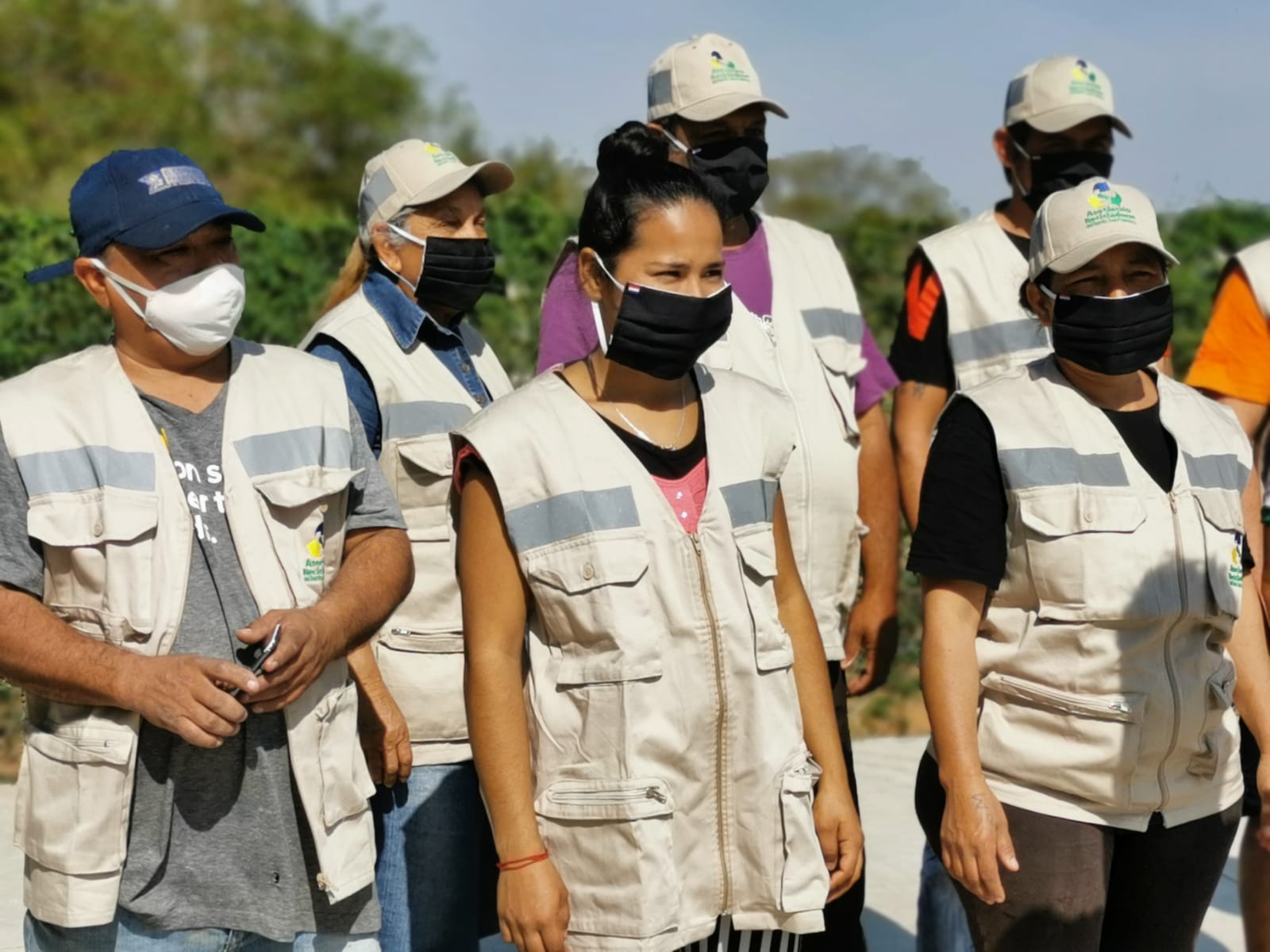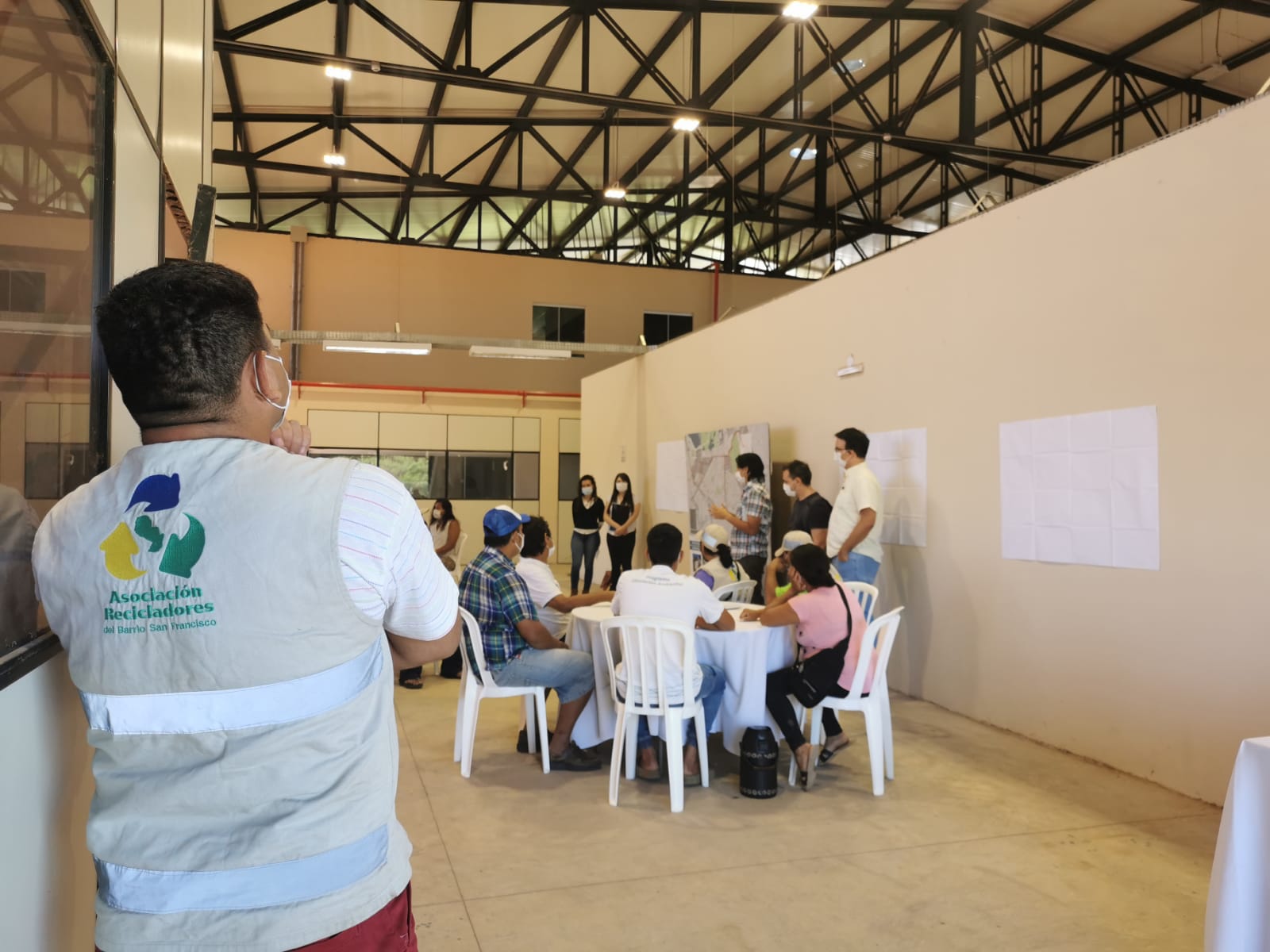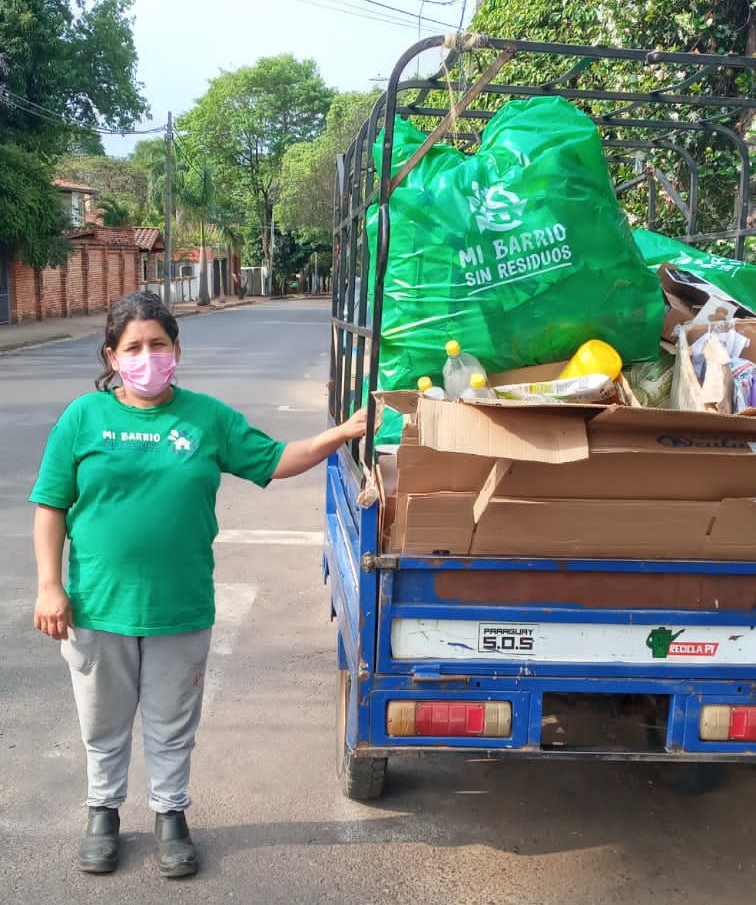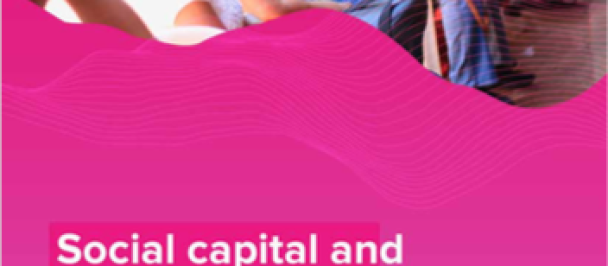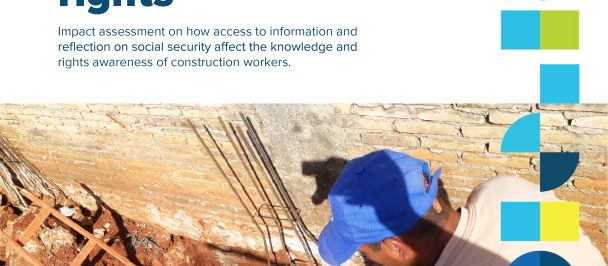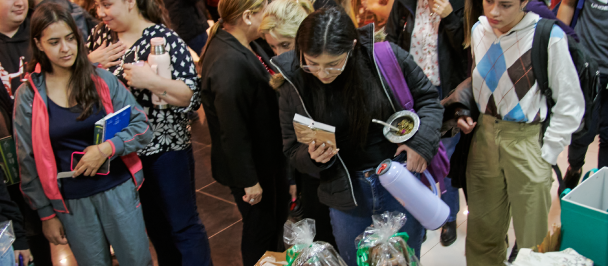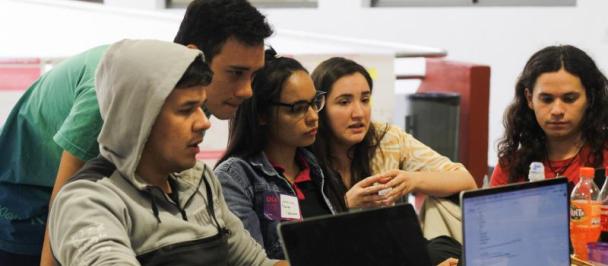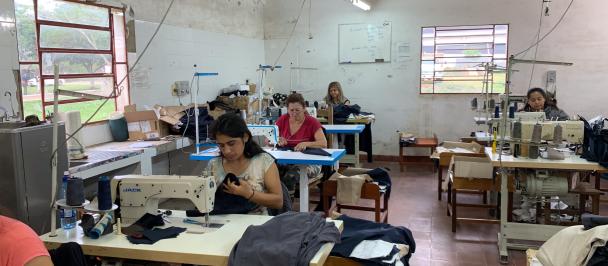A multisectorial alliance is working towards making recycling in Asunción a reality, with more and more families joining the effort of sorting their waste at origin and taking part in the initiative, from the comfort of their homes. Learn more about Mi Barrio Sin Residuos.
Mi Barrio sin Residuos: injecting innovation into recycling
11 de Enero de 2022
Members of the San Francisco Neighborhood Recyclers Association.
Written by: Claudia Florentín, Eliana Tolces, Alejandra Kemper and UNDP Paraguay's Accelerator Lab. Translation to English: Cristhian Parra.
We live in exciting times, where almost everything is within arm's reach, at the distance of a touch on a screen. From doing groceries to filling out official forms to arranging our travel plans, actions that used to take time and effort are nowadays easy to achieve instantly. So what would happen if we applied the same logic of simplicity to activities that have a greater impact, that were once considered extremely complex to tackle, such as recycling?
A multisectorial alliance is working towards making recycling in Asunción a reality, with more and more families joining the effort of sorting their waste at origin and taking part in the initiative, from the comfort of their homes. Read ahead to learn more about Mi Barrio Sin Residuos*.
How to make recycling easy
The first step to recover valuable waste and transform it into a resource, is to sort it at the point of origin, separating recyclables from non-recyclables. In other words, when we dispose of plastic bottles or a milk carton at home, we should only combine them with other recyclable materials of the same category.
This is what Mi Barrio Sin Residuos (MBSR) is about, an initiative that promotes recycling in Asunción by connecting households from 5 neighborhoods with a collective of urban waste pickers, the San Francisco Neighborhood Recyclers Association, who offer their services to collect recyclable materials. This innovative proposal aims to bring about a more circular city through a multisectoral alliance that includes Coca Cola Paraguay, the Municipality of Asunción, The Ministry of Environment and Sustainable Development (MADES), and UNDP, all together within the framework of the Asunción Green City of the Americas - Pathways to Sustainability project.
Through a simple digital platform, residents can sign up and join the initiative, which consists of households sorting their waste at the point of origin, separating recyclables from everything else, and then handing them to members of the Recyclers Association during their weekly visits to each home. In the first stage of the program, the segregated collection service is coordinated by the social company Soluciones Ecológicas, in collaboration with the San Francisco association, and with the support of Fundación Moisés Bertoni.
"I signed up for Mi Barrio Sin Residuos because I noticed that very few people are doing something to take care of the environment. I thought the idea was great and original, it is important to have this motivation to recycle and take care of our city".
Camila Correa, participant.
Plastics, cardboard, paper, aluminum, metals and tetrapak, all of them are within the list of materials collected and sorted by the members of the association at their recycling workshop in the San Francisco neighborhood. They later sell this materials to local recycling companies, closing the circle and allowing these to be transformed into new materials.
Bottom-up innovation and collaboration
Within the framework of the Asunción Green City project, a series of actions had already been under way, focused on strengthening and capacity building for the San Francisco Neighborhood’s Waste Pickers Association, towards the installation of a recycling plant in the community. This experience was the basis for an innovative collaboration with the UNDP Accelerator Lab: from interviews to participatory workshops to learn about the daily life of waste pickers, to a participatory and detailed mapping of their daily routes, collection points, and challenges. This information was the starting point to determine the area where the first pilot of Mi Barrio Sin Residuos should focus, in order to optimize recycling and enhance the work already done by waste pickers.
Recycling plant at the San Francisco Neighborhood.
Photo credit: UNDP Paraguay
Recycling success
Mi Barrio Sin Residuos leaves us with a clear lesson: when citizens are given the opportunity to contribute to making recycling possible, they will seize it. More than 150 homes signed up to the initiative in its first few months, providing enough recyclables to fill 5 of the Associations’ motorcars every week. In six months of operation, over 7,310 kg (about twice the weight of an elephant) of recyclable materials have been recovered, resulting in an increase of approximately 20% of the waste picker's daily earnings.
Fortunately, success never comes without challenges, and we have learned plenty about the areas where we must improve. Further training and information are required to increase the neighbor's knowledge and understanding about which materials can be recycled and which cannot. To capitalize on all the lessons learned, the UNDP Accelerator Lab carried out an experimental impact evaluation of the initiative. On the neighbor's side, we implemented a digital survey on a random sample of participating and non-participating households, which allowed us to measure how the pilot impacted recycling practices and knowledge, levels of trust between the community and the recyclers, and other aspects relevant to this dilemma of collective action.
From the recycler's point of view, we conducted in-depth interviews with the 5 members of the Association who took part in the initiative and carried out participant observation of the activities they perform before, during, and after they tour the city, to provide differentiated collection services to participant households. Finally, we organized a participatory evaluation of the experience with all the stakeholders, in order to understand what benefits Mi Barrio Sin Residuos brought to each of them, and what challenges remain to be solved to make this initiative more sustainable.
Griselda Cantero, president of the San Francisco Neighborhood Recyclers Association. Photo credit: Soluciones Ecológicas.
“With my work I can support my family and, in addition, help the environment. I am told that what I do can change the world. I don't know if it's true, but I do it with joy.”
Griselda Cantero, recycler from Mi Barrio Sin Residuos.
Mi Barrio Sin Residuos is an initiative that has the potential to change recycling habits and improve trust between households and recyclers, while also increasing productivity in the recovery of recyclable materials.
The initiative moves forward, encouraging its organizers to propose new ways to facilitate recycling in Asunción, injecting innovation to achieve continuous improvement. The continuous learning process based on this first experience will allow us to evaluate how to scale Mi Barrio Sin Residuos and continue contributing to a more circular economy and city.
* The name of the initiative translates to "My Neighborhood Without Waste".
Lea este blog en español aquí.

 Locations
Locations